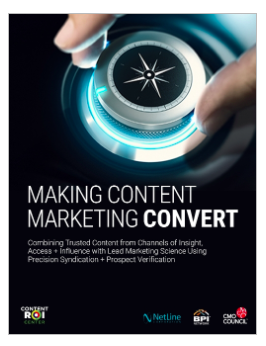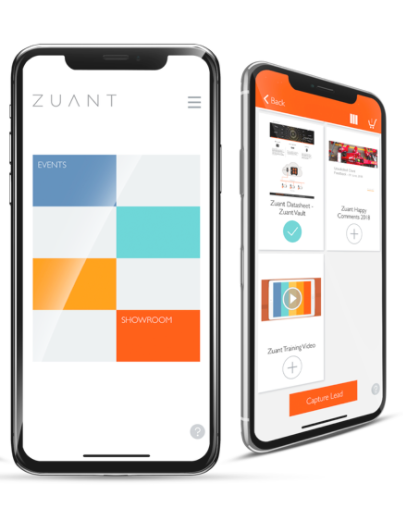With multiple spring conferences and trade shows announcing cancellations and postponements due to concerns surrounding the COVID-19 outbreak, field marketers and demand gen teams have scrambled to fill pipeline quotas and reallocate marketing budgets.
“It's still a bit of an evolving situation every day and it’s forcing people to adjust and rethink things,” said Jeff Pedowitz of The Pedowitz Group, in an interview with Demand Gen Report. “In the near term, we are seeing that the vast majority of events scheduled over the next 60 days are being canceled. And the people that are holding events in the late summer and fall are holding off. For those marketers, they're rapidly moving to some type of digital format. They're still trying to find ways to deliver content.”
The shuffling of the deck on the events calendar has resulted in a surge of virtual presentations, meetings and webinars being launched. B2B companies such as Demandbase, Oracle, Adobe, Outreach and Inverta have opted to host online events to supplement the content and engagement gap from events that had been postponed or canceled. Other companies, including Allocadia, are embracing direct mail to replace booth meetings with virtual ones.
“From a marketing point of view, everyone is just still continuing to focus on anything they can do digitally,” said Pedowitz. “They're holding back and being a little bit more conservative with spend.”
Shifting To Virtual Events
One of the biggest shifts among B2B marketers is a move to supplement the engagement lost from physical events during March and April with online events. Mark Bornstein, VP of Marketing at ON24, a digital experience platform, noted the company’s phones have been ringing off the hook with organizations looking for quick and easy ways to present thought-leadership content and presentations to prospects who had to cancel travel plans and even work from home during the pandemic.
“It is amazing how many organizations have such a significant marketing investment in physical events and when those events are threatened, it really throws companies into a really difficult situation,” said Bornstein. “We've been working with companies of all sizes to help them get their events moved to digital in different forms. In some cases, we see companies moving seminars and turning them into interactive multimedia webinars, which is great. In some cases, there are larger trade shows and conferences, which we're moving to more Netflix-style content or engagement hubs.”
Coronavirus concerns or not, webinars have played an integral role in B2B buyers’ journeys for a long time. In fact, Demand Gen Report’s 2019 Content Preferences study revealed that:
- 39% of marketers said webinars are one of the top types of most valuable influencer content formats;
- 63% said they are willing to share information to access webinars; and
- 63% are willing to spend 20 to 60 minutes watching a webinar.
Webinars and digital events have come a long way since the days of audio-heavy PowerPoint presentations. In fact, Bornstein notes that they can be just as entertaining and engaging as live events. He noted two successful case studies of live events that turned to digital experiences:
“You don't have to abandon all of the different ways in which you were planning on delivering an experience physically when you move them into the digital space,” said Borstein. “You can still have multi-tiered events; you can still have multiple presenters. It allows you to expand your event in a way that you never could before. A lot of the companies that had physical events may have only expected 1,000 people to show. Now that event can be promoted to a much wider audience and suddenly, organizations are going to see events that had a limited potential in terms of attendance — now that number may go way up. It can still be fun; it can still be engaging and still be human.”
Inverta Hosts Unique Virtual Meeting To Support Marketers During Outbreak
The coronavirus outbreak has left many marketers feeling overwhelmed and concerned over event cancellations and necessary budget shifts. With a strategy that is based around creating intimate, experiential events with clients and prospects, Inverta saw this as an opportunity to help the marketing community overcome some of these pressures.
On March 12, 2020, Inverta hosted a Virtual Networking Lunch, titled: “Making the most of pivoting to a virtual environment,” to allow marketers to get together and share ideas, concerns and strategies on an intimate level.
“There's this big pressure to reallocate budget reallocate quickly, to get to a place where we're going to be able to fill this gap in demand that we were relying on for these shows,” said Ashley Shailer, VP of Marketing at Inverta. “I was thinking about the fact that it seems like we're all going to have a version of the same problem really quickly, and that we all just want answers. And the best way to do that would be to hear from each other, brainstorm and figure out how other people were navigating this pivot.”
The virtual event was developed with unique criteria:
- Registration was not mandatory. ZoomInfo access was shared on a landing page.
- An incentive to register and provide information was a $20 virtual UberEats gift card, which paired well with the “networking lunch” theme.
- Attendees were given the opportunity to join late, and hop on and off whenever they pleased, making the event more casual than a typical webinar.
- There were no presentation materials or an agenda. Shailer simply came prepared with questions to ask attendees in case the conversation didn’t flow organically.
“I wanted marketers to get together and discuss how they're dealing with these event cancellations and budget reallocation, and really anything else on our minds right now,” said Shailer. “I lined up one person, Elle Woulfe [Vice President of Growth Marketing at InVision], who I knew had just successfully conducted an internal virtual event with her company, just in case we had a participation issue. I just put it out on LinkedIn and had some of my co-workers at Inverta also post it. We did a highly targeted paid social campaign through LinkedIn that was account- and title-specific.”
The event proved successful, as more than 120 people registered to receive the $20 gift card and 60 of those attended the event live.
Leveraging Direct Mail In Lieu Of Booth Engagement
While webinars and virtual events are an obvious choice for marketing organizations to invest in while coronavirus concerns continue to rise, other companies are increasing their direct mail spend to stand out and get virtual face-to-face meetings during the outbreak. Like ON24, PFL, an automated direct mail solution provider, is experiencing an uptick in calls from field marketers looking to shift their budgets and maximize opportunities.
“We’re getting a lot of phone calls from event marketers saying, ‘Hey, these events got canceled. Now, what do I do?’ Because they're looking for an alternative to meet those goals,” said Nick Runyon, CMO at PFL. He noted that research the company published with Demand Metric shows 78% of CMOs said integrated, branded personalized direct mail is very effective.
For Allocadia, a marketing performance management software provider, it was important to first analyze budgets and reinvest in demand gen efforts that would help book the same number of meetings as an in-person event.
“When receiving the news of event cancellations, my first port of call was, ‘Okay, where am I at with my money?’ Because, really, I need to know how much money I've got in the bank and how much I now have to reinvest,” said Bróna O' Connor, Director of Demand Generation for Allocadia, in an interview with DGR. “For us, the biggest show that's been canceled so far is the Adobe Summit. These things happen, but I think in marketing, we always try to be agile. We obviously are now reallocating dollars away from the Adobe Summit into other programs.”
A key strategy for Allocadia was to leverage direct mail, which the company was already planning to leverage to drive meeting signups among target accounts attending Adobe Summit. Now, O’Connor said the company is expanding those efforts towards a wider audience beyond event attendees.
The campaign revolves around a direct mailer with a faux, Allocadia-branded $100 bill. The goal is to communicate that money doesn't grow on trees and how, with Allocadia’s marketing platform, people can make smart investments and reallocate marketing dollars towards programs that are driving the most demand. The target account is asked to accept a meeting with Allocadia, and in return, the company will plant 100 trees in their name. The entire program aligns with the company’s values around sustainability and philanthropy, giving prospects “a tangible feeling of who Allocadia is,” according to O’Connor.
“When we think about our show goals, we think about driving meetings from target accounts and that brand awareness,” O’Connor added. “We think about really driving that top-of-funnel demand from our presence on the show floor from booth traffic. Direct mail was a key component in helping to drive meetings with those target accounts. So, we already had a program in place to get those meetings booked with the Adobe audience. But now with Adobe no longer on the table, we can actually pivot really quickly (with PFL’s help) to expand that program beyond the reach of the Adobe audience, but for other audiences too.”
Staying Human Through A Digital Screen
While no one knows when the outbreak will stop and business will go back to usual, it’s important to remember that today’s technology allows us to still maintain a human connection. Digital experiences are available to fill gaps in prospect engagement, customer support and thought-leadership content offerings.
“What marketers should do is evaluate the marketing calendar for the next three months,” said Pedowitz. “Continue to go with any events you already had digitally, but anything that's live, start making plans to convert that to some type of digital experience. And contact all the speakers, contact attendees and just move the event to the cloud.”
In the meantime, Inverta’s Shailer noted some important things marketers should keep in mind:
- Think about reallocating budget towards the things that have worked well for you in the past digitally.
- Set some budget aside for things that might get rescheduled in the fall or if you're asked to cut your budget.
- Be aware of webinar fatigue, as there will be an uptick of options for your audience to choose from. Consider podcasts and other multimedia experiences.
- For webinars and virtual meetings, don't be afraid to be human and have fun.
“I think one of the things that people like about live events is that they are extemporaneous,” said Shailer. “People aren't afraid to connect on an emotional level, use humor and be themselves. Whereas, I think in a virtual environment, there's this culture of, ‘Oh, we're going to record it; we're going to replay it over and over again, it has to be super hygienic. If we're going to double down on these virtual events, we need to not be afraid to connect with people in a human way, even though we're not there in person.”





